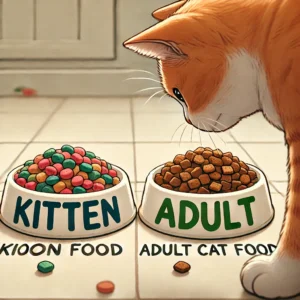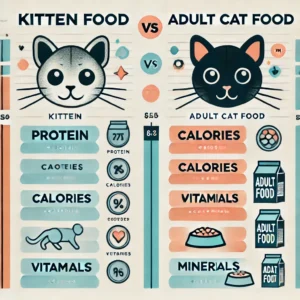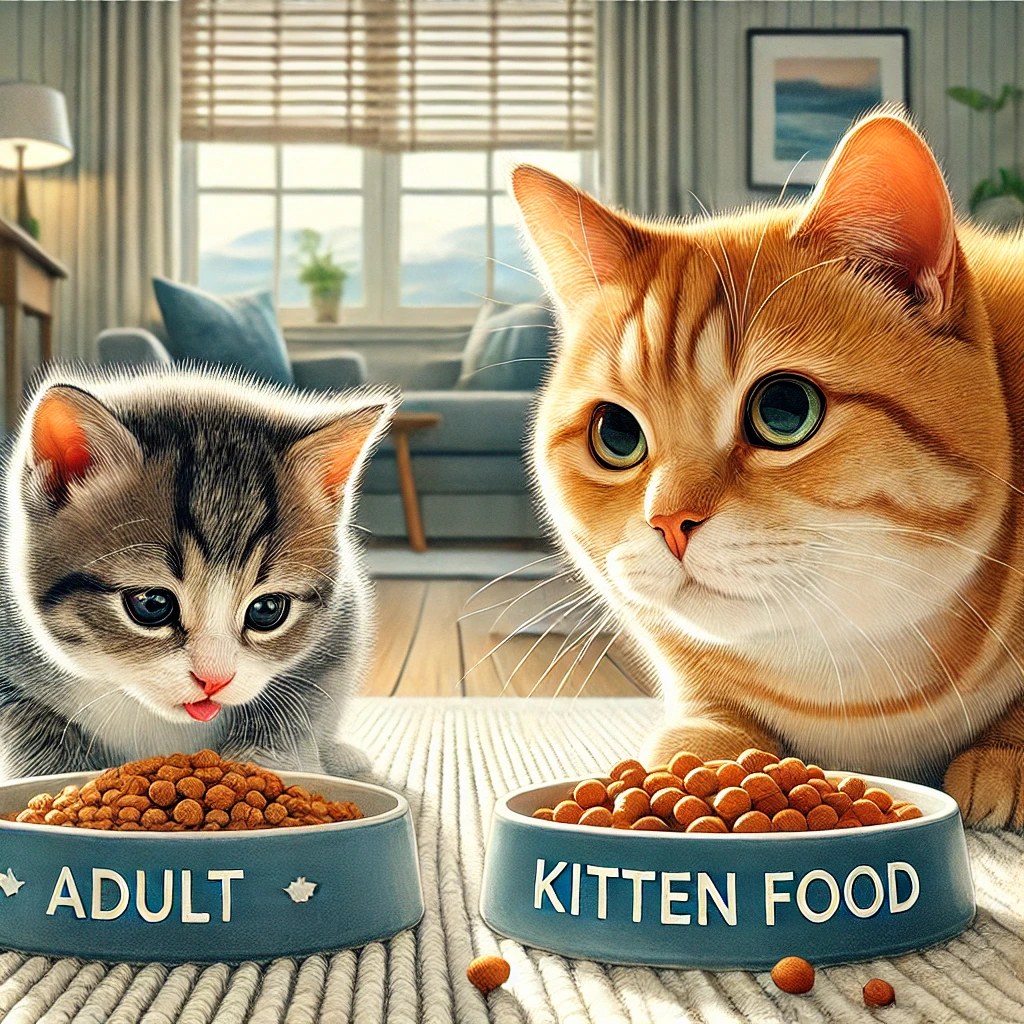For feeding your adult cat, selecting the proper diet is essential for their health and well-being. Many pet owners wonder if they can feed their adult cats foods precisely planned for kittens, such as Fancy Feast kitten food. While this may seem like a simple choice, there are several important factors to consider. This article will provide a comprehensive analysis of whether feeding Fancy Feast kitten food to adult cats is advisable, discussing the nutritional differences, potential benefits and drawbacks, and factors to consider before making this decision.
Key Nutritional Differences Between Kitten and Adult Cat Food

Kitten food, including Fancy Feast kitten formulas, meets the nutritional needs of growing, active and developing young cats.
These formulas are higher in calories, protein, and specific vitamins and minerals to support growth, energy, and immune system development.
Adult cats typically require a different nutrient balance. Their energy needs are lower than those of kittens, so their food is usually planned with fewer calories and a slightly lower protein content to prevent weight gain and other health issues.
Fancy Feast, like other reputable brands, creates its adult and kitten formulas to address these unique requirements. Feeding kitten food to an adult cat may lead to an imbalance in their diet.
Can You Feed Fancy Feast Kitten Food to an Adult Cat?
In short, it’s safe to feed Fancy Feast kitten food to an adult cat occasionally, but it should not become their primary source of nutrition. Here are the key factors to consider:
1. Caloric Content and Weight Gain: Kitten food’s higher caloric density can quickly lead to weight gain in adult cats if fed consistently. Extra calories, when not offset by physical activity, can cause obesity, which poses health risks such as diabetes, arthritis, and heart issues.
2. Protein and Fat Levels: Kitten food typically contains more protein and fat, which can be beneficial for an active adult cat but may be excessive for a less active adult or an elderly cat. High protein and fat diets can cause digestive upset in adult cats who aren’t used to such richness, leading to potential issues like pancreatitis.
3. Vitamin and Mineral Content: Kitten food contains elevated levels of specific vitamins, such as DHA, for brain development, which aren’t essential for adult cats. While these vitamins aren’t harmful in small amounts, long-term exposure to excessive levels may strain the kidneys and liver.
4. Palatability: Kitten food tends to be more palatable because of its richer taste and aroma. While this is a benefit for picky adult cats, it may encourage overeating and lead to dependency on the taste, making it difficult to transition back to a balanced adult cat food.
Benefits and Trade-Offs of Feeding Fancy Feast Kitten Food to Adult Cats
 Benefits:
Benefits:
Short-Term Appeal: If your adult cat is a picky eater or has a decreased appetite because of illness, kitten food can solve this problem and ensure that it receives adequate nutrients.
Higher Nutrient Content for Active Cats: If you have an active or underweight adult cat, the additional calories and protein in kitten food can help them maintain or reach a healthy weight.
Short-Term Recovery: Kitten food can be helpful for adult cats recovering from surgery or illness because of its nutrient-dense formula.
Drawbacks:
Long-Term Nutritional Imbalance: Feeding kitten food to adult cats long-term may cause excessive calorie intake, potential weight gain, and imbalanced nutrient levels, leading to possible health risks.
Dependency on Rich Taste: Your cat might become accustomed to the richer taste of kitten food, making it challenging to transition back to adult formulas.
Balancing the Decision: When to Use Kitten Food for Adult Cats
While feeding kitten food, like Fancy Feast, to an adult cat occasionally or for specific reasons is usually safe, it’s essential to balance this choice with the cat’s individual needs. For instance, if your adult cat is underweight, a temporary switch to kitten food may help improve their condition. However, for most adult cats, switching back to a standard adult formula is advisable to maintain a balanced diet suited to their stage of life.
If your cat is a picky eater and only accepts kitten food, consider gradually transitioning them to high-quality adult food by mixing small amounts into their meals. This approach will help them adapt to the new food without compromising their dietary needs.
Consulting with Your Veterinarian
Before making any long-term changes to your adult cat’s diet, consult your veterinarian. They can offer personalized advice based on your cat’s specific health profile, age, weight, and activity level. This is especially crucial if your cat has underlying health conditions, as certain nutrients in kitten food may exacerbate or improve these issues.
Conclusion:
Feeding Fancy Feast kitten food to an adult cat is safe in limited circumstances, such as short-term use for weight gain or appetite stimulation. However, using kitten food as a primary diet for an adult cat may lead to health complications because of its higher calorie and nutrient content. When making dietary decisions for your cat, consider their age, health, activity level, and any specific nutritional requirements.
For most adult cats, a balanced adult cat food formula is the best choice to ensure they receive all the nutrients needed for their current life stage. When in doubt, consult your veterinarian to make the most informed decision for your pet’s long-term health and well-being.

Hi, I’m Sondip,
I’m a writer who loves to help people solve their problems. I write about small animals like mice and other small animals and even pests.

